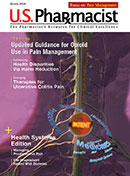Diabetes is well known to enhance a person's chance for developing kidney disease. A new clinical study from Washington University School of Medicine, St. Louis, Missouri, points to the reverse connection: Kidney dysfunction increases the risk for developing diabetes.
A likely culprit of the two-way relationship between kidney disease and diabetes, according to scientists, is urea. A byproduct of the breakdown of protein in foods, urea is normally removed from the blood by the kidneys. When kidney function fails, however, urea can build up. The research findings by the Washington University scientists are important because undesirable urea levels can be lowered through diet (for example, by eating less protein) and with medications. One possible result of treating kidney disease, therefore, might be prevention of diabetes.
Conducted in partnership with the Veterans Affairs St. Louis Health Care System, the study was published December 11 in Kidney International.
"We have known for a long time that diabetes is a major risk factor for kidney disease, but now we have a better understanding that kidney disease, through elevated levels of urea, also raises the risk of diabetes," said the study’s senior author Ziyad Al-Aly, MD, an assistant professor of medicine at Washington University. “When urea builds up in the blood because of kidney dysfunction, increased insulin resistance and impaired insulin secretion often result.”
Researchers examined medical records in national VA databases of 1.3 million adults without diabetes over a 5-year period starting in 2003. A common blood test showed that 117,000 of those without diabetes (9%) had heightened urea levels, indicating poor kidney function (a percentage, Al-Aly said, that is reflective of the general population).
Overall, he said, those with elevated urea levels had a 23% higher risk of diabetes. In each year studied, the researchers documented new cases of diabetes in 2,989 of every 100,000 people with low urea levels and 3,677 new cases of diabetes among those with high urea levels.
Related CE
$6.97 Per CE Exam or $59 for 12 Lessons





